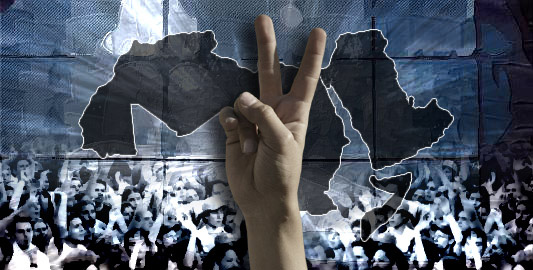
This column has forecast how the Arab Spring could too easily metastasize when or if the powerful causal forces of great public discontent aren’t dispersed or reliever.
What is interesting is to speculate whether the power of discontent could spread and not merely within the region. What is happening in Europe and in the United States provides a somber warning to draw from the Arab Spring.
In Tunisia, Libya, Egypt, Bahrain and Yemen popular uprisings grew not from religious ideology nor zealotry but basic needs. In an increasingly networked world, people want jobs, economic prosperity, hope for the future and political empowerment. Former national security adviser Brent Scowcroft calls this the need for dignity. However, in essence, it is a cry for good or just better governance.
Sadly, governance isn’t the only problem. Economic weakness due to a lack of resources, basic infrastructure or the absence of a market system is a huge obstacle.
Hence, in Egypt or Yemen, even if new governments were motivated to reform and progress, it will require decades to raise standards of living. Libya, of course, has oil. Perhaps a new government could make a difference although Iraq may prove the rule not the exception in failing to exploit vast natural resources.
Move north to Europe and West to the United States and observe what could be tectonic political shifts. In response to government fiscal cuts and grave economic conditions, outbreaks and protests in Greece, Portugal and Spain have intensified. In the United Kingdom, public uproar over cuts to education may be the start — not the finish — of the need to reduce public spending and debt. The elections there two weeks ago were a blow to the Liberal Democrats as supporters reacted adversely to the new budget in the voting booth.
Ironically, the cause of these still nascent but possibly escalating protests in the West is remarkably similar to those of the Arab Spring: governance.
With the budgets of most countries filled with oceans of red ink for the indefinite future, tough choices and tradeoffs need to be made. That is one reason why defense spending in nearly all European countries is headed downward at a rapid pace.
Similar symptoms are clear in the United States. Congress is paralyzed for the moment to take action on raising the debt ceiling limit from the current $14.3 trillion. By deft acts of magic, the Treasury Department has postponed the day of reckoning to early August. However, with presidential elections a year and a half away, neither Republicans nor Democrats wish to take the first step and invite the wrath of the other party in criticizing whatever plan or choices emerge. Still, procrastination will end this summer.
The reality and heart of the problem is that in the West, generally speaking, governments have produced and financed so many programs that dependencies bordering on addictions have been created from education to social engineering to health care and retirement. Concurrently, the United States has been fighting two-plus wars — depending on how one views Libya — and is spending all told more than $1 trillion a year on its national security. So where to cut?
On top of that, unlike the Arab Spring, ideology counts in America and in Europe as well. Republicans disavow the notion of tax increases. Democrats hedge on cutting too deeply in social programs. The consequence is that the ship of state is headed at gathering speed at an enormous and unmovable fiscal iceberg. With many captains on deck so to speak, the helmsman is getting no orders to change course or reduce speed.
What will happen is far from certain. History provides at best unhappy examples. The United States sprung from a revolution. George Washington had to deal with a Whiskey Rebellion; Abraham Lincoln with a civil war. During the 1960’s, the United States faced massive riots and looting over race, Vietnam and other social issues from Detroit to Watts in California. A retired U.S. Army general reminisced that his first fire fight came not in Vietnam but in Washington only hours after Richard Nixon’s first inauguration in January 1969 during one major riot that military forces had to quell.
Good or better governance will not arise of its own accord or happen overnight. What the Arab Spring should be telling us is that at some point, when governance fails, public outrage grows and becomes uncontainable. That isn’t isolated to Cairo, Sanaa nor Damascus. People have common motivators irrespective of where they live.
Politicians need to be reminded of these facts of life. This isn’t 1789 in France, 1848 in Europe or 1917 in Russia. But unless governments get a better grip on their responsibilities and act accordingly, who knows what lies ahead.
Harlan Ullman is Senior Advisor at the Atlantic Council, Chairman of the Killowen Group that advises leaders of government and business, and a frequent advisor to NATO. This article was syndicated by UPI.
Image: arab-spring.jpg
